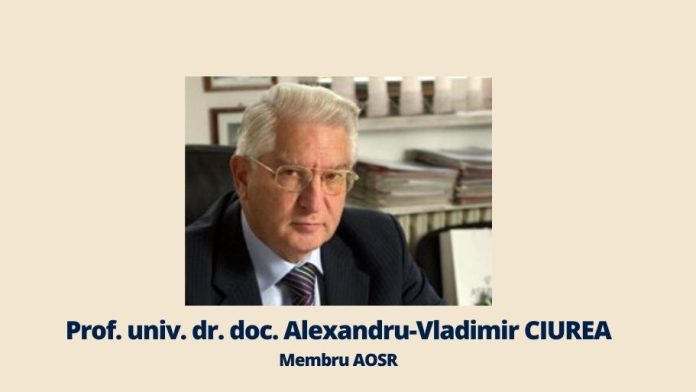Prof. dr. doc. Alexandru-Vladimir Ciurea, Member A.O.Ș.R.
The easiest thing is to destroy something, anything: a statue, a symbol, a car (if it’s a police car, the “healthier” the destruction), a shop, etc. If, after the shop windows are smashed, the merchandise can be stolen, the more “serious” the destruction. The scale of the hostility-laden events is growing and spreading across the “civilised world”. The killing of George Floyd by a more than zealous policeman was the spark that ignited the world’s discontent.
George Floyd became an icon, even though his life was a model for no one.
Far be it from me to dispute in any way the injustice that can be seen with the naked eye in the action of the policeman who killed this man. And far be it from me to disapprove of demonstrations protesting police brutality. Racism is a plague, the world owes it to itself to draw attention to and campaign against discrimination of any kind. But I find the violence, the fanaticism of some demonstrators and, above all, the desire to erase from history any memory of times or characters whose deeds, committed many hundreds of years ago, do not fit the worldview of today’s people, far too exaggerated. And we take revenge on monuments and statues. Why?
Contradictions can be constructive as long as they don’t get out of hand and become conflicts!
But we all see that human society prefers to discharge the energy of discontent through acute conflict. In my opinion, there are two factors that favour this type of manifestation: social injustice and lack of education and culture. The social injustice is simple to explain: a small fraction of people (5%, according to some economists) control 95% of the planet’s wealth. And the lack of education (and culture) has become part of the natural for many reasons. One would be the impressive access to information thanks to the fantastic evolution of technologies. This limited brain activity to accessing computer buttons. You don’t need to know anything, you just need to know how to Google, for example: here we find everything, even the most complicated diseases and their complex treatments. So we stop reading and thinking. The second thing I want to refer to is that the “package” I was talking about (injustice and lack of books) overlaps with democracy understood as a form of life and expression without limits or constraints. And then each individual will act exclusively to satisfy his own desires by ignoring and disregarding rules and regulations. Anyone can broadcast thoughts on social media, even if they are ungrateful and even if they are wrong. Right from what point of view, you might ask? From the point of view of educated thinking and civilized social behavior, I would respond with a short sentence.
The state of conflict is also omnipresent in Romania.
You will say that Romania does not have a big problem with racism or any kind of discrimination. True, not in the sense that the United States or other European countries have it. But the Roma community and its problems cannot be swept under the carpet. Social inequalities cannot be ignored either. Romania is a paradise of easily acquired wealth, without much work, through dishonest means. I’m not talking here, let’s be clear, about honest entrepreneurs. I’m talking about the “models” with expensive cars and swords on board that control poor communities. “Models” that show there is a shorter path to prosperity than work or school. We see them, they grow before our eyes, and poverty – which produces frustration and social discontent – makes the younger generations insensitive to the classical format of becoming. Why should I study if the seven-grade “Dorel” has everything he needs in drugs, cars or “pee-pees”?
The constraints of the state of emergency and states of alert have further stirred up social hostilities.
In this period when people’s rights have been curtailed because of the pandemic, the state of anxiety, the fears of everyone and every family have been heightened. Quite rightly, the authorities reacted rather confusedly, fixing decisions they had made only the day before, because nobody knew what we were up against. I give them mitigating circumstances. But, at the same time as the measures to limit the movement of society, the level of incompetence of some politicians, ministers or not, has become clear. If a minister speaks the wrong Romanian, the question arises: how did he become a minister? There are countless examples in this register, I do not insist on them. My point is that the model of the ungrateful minister overlaps with the model of the clan chief, and people will either choose a short road in life to acquire power or money, or they will retreat further into themselves. And the educated and studious youth will emigrate. This compromises the idea of community. Social peace disappears. And the Government opens gambling halls and keeps theatres, conferences, auditions, concert halls closed because, in an age of hostility, luck easily replaces work, culture and education!


